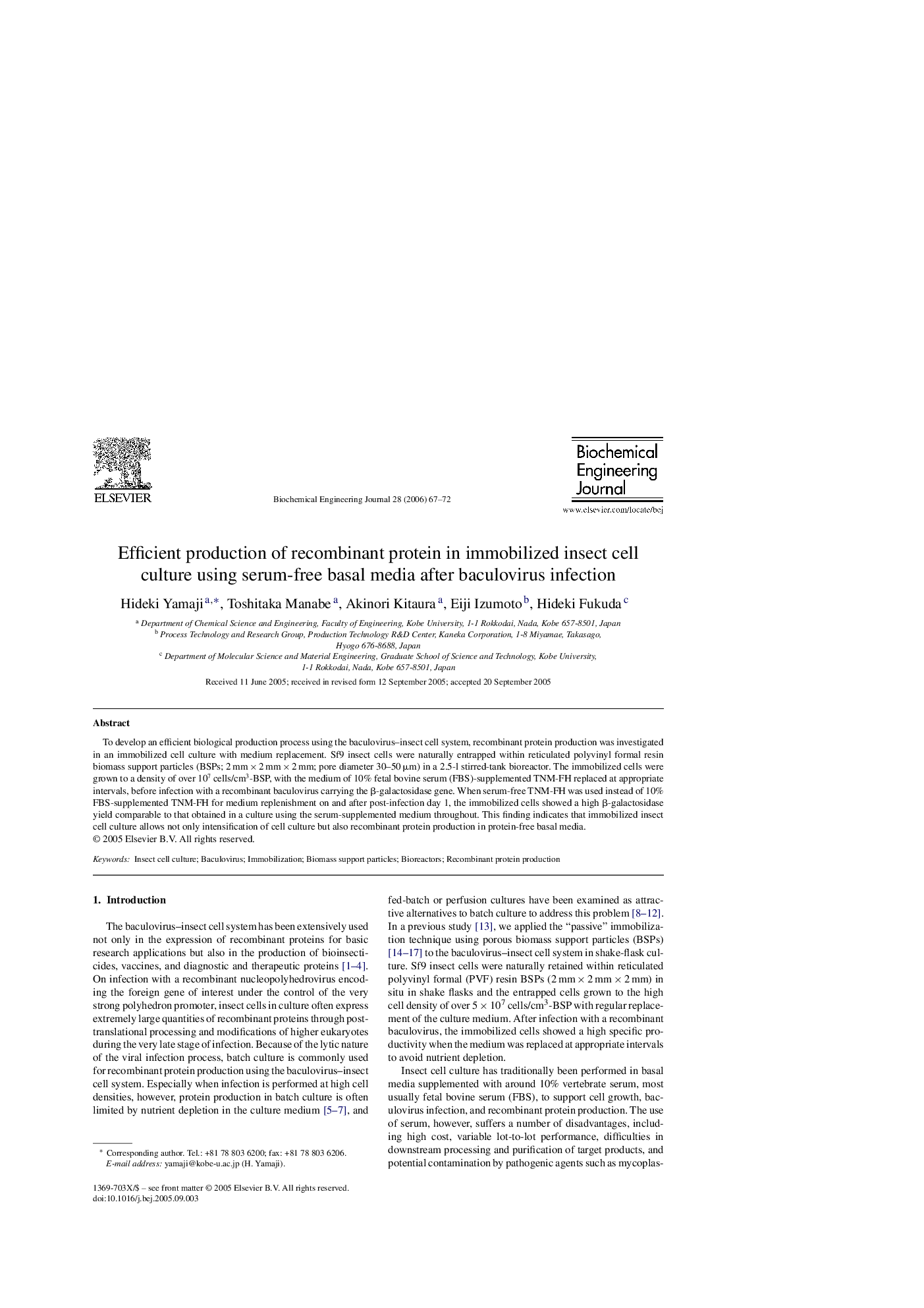| Article ID | Journal | Published Year | Pages | File Type |
|---|---|---|---|---|
| 4979 | Biochemical Engineering Journal | 2006 | 6 Pages |
To develop an efficient biological production process using the baculovirus–insect cell system, recombinant protein production was investigated in an immobilized cell culture with medium replacement. Sf9 insect cells were naturally entrapped within reticulated polyvinyl formal resin biomass support particles (BSPs; 2 mm × 2 mm × 2 mm; pore diameter 30–50 μm) in a 2.5-l stirred-tank bioreactor. The immobilized cells were grown to a density of over 107 cells/cm3-BSP, with the medium of 10% fetal bovine serum (FBS)-supplemented TNM-FH replaced at appropriate intervals, before infection with a recombinant baculovirus carrying the β-galactosidase gene. When serum-free TNM-FH was used instead of 10% FBS-supplemented TNM-FH for medium replenishment on and after post-infection day 1, the immobilized cells showed a high β-galactosidase yield comparable to that obtained in a culture using the serum-supplemented medium throughout. This finding indicates that immobilized insect cell culture allows not only intensification of cell culture but also recombinant protein production in protein-free basal media.
